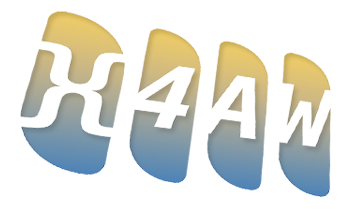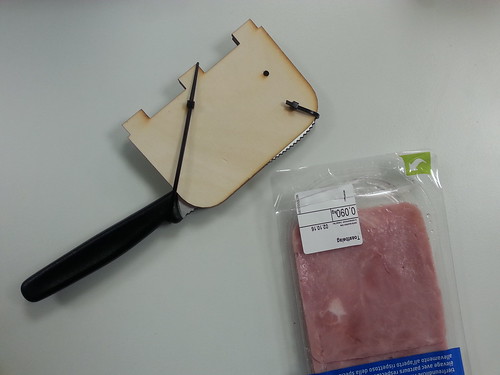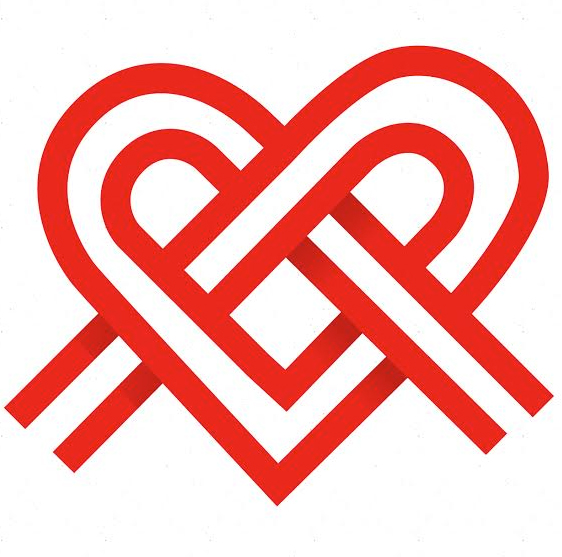Categories
AAL
Projects from Hack 4 Ageing Well which fit any of the general themes outlined on the homepage of the hackathon or the AAL Forum.
Infermedica
The Internet has become a primary source of information regarding our health. According to recent studies, one in three adults have gone online to figure out a medical condition. 77% of online health seekers say they began at a search engine such as Google. In this challenge we encourage you to build a patient-friendly symptom checker to analyze symptoms and recommend appropriate medical services. In completing the task you may find Infermedica API helpful.
This challenge was submitted by Milosz Wicinski.
Map your childhood
Oral history is the collection and study of historical information through interviews. With Historical Maps and a time travel function, or even in 3D, the elder generation can revisit places where they grew up. And then annotate maps with text/ images with a tutorial explaining how. These maps can then be shared and collected and embedded on another site using iFrames. See example map:

This challenge was proposed by @swiss_geoportal.
My ageing data
In the social sciences, data is often collected in so-called 'longitudinal studies' from people aged 50 and over - various measurements of health, economic and social circumstances, mobility and finances, and so on, are used to analyse trends and make forecasts within a certain demographic.
Various physical, lifestyle, mental health (cognition), and other measures are used in subsequent publications, such as:
- World Health Organization Study on global AGEing and adult health (SAGE), and the Survey of Health, Ageing and Retirement in Europe
- 10 year follow-up and other reports from the English Longitudinal Study of Ageing, and publications from the Irish Longitudinal Study on Ageing
- Health and Retirement Study and others listed in the National Archive of Computerized Data on Aging from the U.S.A.
- Journalists' Image of Old Age Study in Switzerland (German only report)
Goals of this challenge:
- Find and select a sample of open data (i.e. processed, anonymized and republishable) relevant to this challenge. Search through open data portals, or see here for a list of links that we started.
- Analyse and visualise demographics similar to the kinds used in a social sciences study on ageing.
- Design a citizen science application where people could volunteer more study data online.
- Prototype and deploy this "My Data" application, build-in APIs or open data exports.
Bonus questions to explore:
- what compels or distracts from participating in studies - could people be encouraged to collect their own data?
- are there interesting new ways to gather the data, e.g. through online surveys, apps and other digital tools?
- how much effort is involved in understanding and analysing such data, how does it inform - how can it mislead?
- can this type of data be effectively anonymized, and what risks are there in unauthorised disclosure?
- what approaches would there be to make citizen science a part of collecting and (re)using this information?
- which standards, formats, platforms could be most supportive of Open Science and open research data sharing?
For further information see presentations by Rufus Pollock and others at the recent MyData 2016 conference. This challenge was submitted by the Opendata.ch association.
Pryv
Pryv SA, a Lausanne based swiss company, is specialised in sensitive and health data management. For participants of Hack for Ageing Well, Pryv has provided three challenges to enhance each dimension of wellness, in order to improve elderly wellbeing and health. One team that demonstrates excellence in this will be selected and awarded 1’000 CHF in consultancy services provided by the Pryv expert team on topics of Data Privacy; Regulations; Software and Business Development.
- Challenge 1: “Coach your Mum”
- Challenge 2: “Geofencing for people with Dementia”
- Challenge 3: “Pimp your Pryv”
- References

Challenge 1: “Coach your Mum”
Category: Enhancing Physical and Occupational Wellness
Elderly people who live alone often reduce the self-careness rhythm. This leads to unhealthy life conditions, dis-balanced nutrition habits, higher risk of diseases … Thus, Pryv encourages the development of an innovative product to enhance the remote relationship between a “Mother” and a “Daughter” where via using a secure and compliant technology the daughter can have a peace of mind, her mother has a healthy physical wellness, representing a combination of physical activity and nutrition habits. Track the Mother’s activity:
- waking-up/going to bed on time
- geographical position
Enhance healthy nutrition habits, by tracking data about:
- Time and amounts of meals taken
- Available Groceries Goods in the fridge (to be used to generate/link to Recipes that might be prepared with them)
- Developing an app that can enable the creation of a “Shopping List” ( link to the consumed goods)
- Use Pryv backend to :
- collect the heterogenous data
- store the collected information in a contextualized and interoperable way
- share subsets of data and access shared subsets of data, in order to enhance secured social relationships
- Use Pryv existing integrations
- Moves App to track the location
- IFTTT ( If this Then that) for generating triggers
- Build up your own data source integrations
- Pryv iOs App and Dynamic Dashboard for live, real-time data visualization and demos
- SDKs to develop your own Apps and Visualisations (javascript, cocoa, java)
Challenge 2: “Geofencing for people with Dementia”
Category: Physical and social Wellness
Having Alzheimer disease shouldn’t oblige the patient to stay isolated at home without any freedom, physical activity and social engagement. Pryv encourages the development of a solution to allow a Patient with Alzheimer ( the patient) to maintain his/her physical and his/ her social wellness.
Pre-define a geolocational zone where the patient is free to move around, but as soon as he goes too far, outside of the zone, the family ( or a trusted person) receives an alert and the geographical position of the patient.
- Use Pryv backend to :
- collect the heterogenous data
- store the collected information in a contextualized and interoperable way
- share subsets of data and access shared subsets of data, in order to enhance secured
- **GPS several options: **
- Use ASI (fieldwiz) GPS + GSM tracker as well as their "top shirt"
- Simulate with a phone
- Use another GPS tracker
- Use Pryv.me Dynamic Dashboard for data visualization and live, real-time deoms
- Use Pryv Hook engine (beta) to run an event based computation (Request docs and info at tech@pryv.com)
- Use Pryv SDks (javascript, cocoa, java) to develop your own Apps and Visualisations
Challenge 3: “Pimp your Pryv”
Category: Social, Emotional, Intellectual and Spiritual Wellness
As earlier exposed in this document, in our understanding, the complete wellness includes intellectual, occupational and spiritual comfort and wellness. Pryv encourages you to enhance these phases of wellness in the development of a compliant innovative product, ideally using the provided Pryv tools.
Leverage on your own experience, assemble it with the already existing technology and tools provided by Pryv and forge your innovative thinking into how to enhance the elderly people intellectual, occupational and spiritual wellness.
- Use Pryv backend to :
- collect the heterogenous data
- store the collected information in a contextualized and interoperable way
- share subsets of data and access shared subsets of data, in order to enhance secured social relationships
- Use Pryv existing integrations
- Moves App to track the location
- IFTTT ( If this Then that) for generating triggers
- Build up your own data source integrations
- Pryv iOs App and Dynamic Dashboard for live, real-time data visualization and demos
- SDKs to develop your own Apps and Visualisations (javascript, cocoa, java)
References
Technical: Ilia Kebets ilia@pryv.com Business: Evelina Georgieva evelina@pryv.com
Development Guidlines: http://api.pryv.com/guidelines/ API Documentation: http://api.pryv.com/ (Needed for usual development) Extended API Documentation: http://api.pryv.com/reference-full/ Javascript examples:http://api.pryv.com/getting-started/javascript/
Libraries
Javascript: https://github.com/pryv/lib-javascript Cocoa: https://github.com/pryv/lib-cocoa Java: https://github.com/pryv/lib-java Node Bridging: https://github.com/pryv/lib-node-bridge
Ready to travel
Create the most useful public transport timetable application to include all relevant information - for instance, in consideration of reduced mobility - for retired people who enjoy travel. The standard timetable may not fit all of their specific requirements. Meanwhile, the Swiss Federal Railways (SBB) have provided many datasets on their new Open Data platform which could be of help.
For example: the regular timetables are not perfectly suited for people who cannot quickly change trains. With advanced search options, special change-times could be applied. The timetable does not know if there is a coffee shop nearby to wait at, or if there is a rooftop on the platform.
We provide Information about the timetable on fahrplanfelder.ch or gtfs.geops.ch - if you would like to implement your own routing algorithm. If you would like to use a preexisting algorithm, then look at viadi-api.ch
On the SBB Data Portal the following information is provided:
- Plattform
- Height
- Roof
- Stop point of the train
- Sectorplate
- Surface
- Station opening hours
- Stores
- Adresses
- Rollingstock
- Trains
A take-home prize from the SBB will be awarded to the team that makes the most exemplary use of open public transportation data.
The S-factor
Stress is possibly the most widespread single health problem in our society. Many elderly people could talk about a life of stress, some of how much their lives were improved by managing or mastering it.
Yet all the changes that come with ageing and retiring - that affect one's finances, self-image and lifestyle - are potentially very stressful. From moving into a nursing or care facility, all the way up to the loss of a spouse or other close relations, as well as anxiety about one's own health issues... it's not hard to imagine that life in old age could be especially stress-prone!
Some scientists assert that anxiety disorder is even more prevalent than depression in older adults, and that "Psychoeducation is important to educate patients and families regarding the nature of anxiety disorders, and to dispel stigma, misinformation, and other barriers that may prevent treatment adherence." E.A.Beverly et al 2016
We are from a young Swiss start-up that set out to build a tool that combines vital, biographic and conversational data to measure, predicts and prevents burnouts or one of the many related diseases caused by stress. Right now we are developing a system to support Cognitive Behavioral Therapy (CBT) with electronic data collection and communication.
Our challenges for the hackathon:
- Collect sources of data relevant to measuring stress and its symptoms, such as open clinical trials and other types of studies.
- Use bio-sensors (we will bring a few) to experiment with measuring stress using hardware platforms such as Arduino and mobile phones.
- Create an infographic, app or accessible website that educates about CBT and other psychotherapeutic approaches to fight stress at the source - visualizing data from either of the above.

This challenge was submitted by Max Grossenbacher.
universAAL
universAAL is an open source platform that enables interoperability and rapid development of innovative IoT solutions. Through the acceleration and growth of interconnectivity, it empowers users to create a fully customized lifestyle experience.
If you could create and connect anything within the IoT sphere, what would you choose and why? This is the challenge that universAAL sets for Hackathon 2016. Thinking outside the box, what new product or service solutions can you dream up that will resonate around the world and create a more connected tomorrow.
Challenge: develop interoperable software and hardware modules, then demonstrate the system’s integration, extension and plug and play flexibility through personalization.
With universAAL your concept will gain interoperability in different dimensions:
- Applications: Enable your solution to communicate with others in a semantic way. By using ontologies, you can define what your solution does, and what you want from others.
- Devices: Make your solution independent from device technologies. With universAAL IoT exporters you can plug seamlessly to multiple sensor and actuator technologies (ZigBee, KNX, OpenHAB…).
- Architectures: The universAAL open platform is compatible with multiple deployment architectures, and is able to run in different environments. Use the Java version running on OSGi and embed it on everything from a PC to a Raspberry Pi, or use it as an app on Android, or simply access it as a RESTful API. And have them all communicate with one another.
This isn’t all that you will find in the universAAL open platform. There are additional features you can take advantage of. From semantic databases to programmable reasoners and user interface customization, check out everything universAAL has to offer and start programming:
Official website: http://www.universaal.info/
GitHub page: https://github.com/universAAL
Your starting point for documentation: https://github.com/universAAL/platform/wiki
Understanding the technology in 5 easy minutes: https://github.com/universAAL/platform/wiki/DG-Understanding-universAAL
Got questions? Ask the developer mailing list: dev @ universaal.aaloa.org
YouTube channel: https://www.youtube.com/playlist?list=PLbxn2kxb8liuZvcGbk4GrAqCnzuV_ELNH
This challenge was provided by Álvaro Fides Valero, who will be taking part at Hack for Ageing Well.



